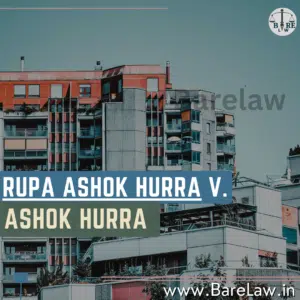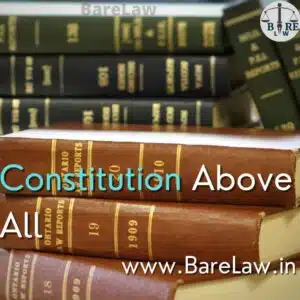Simplifying Your Life & Law | Legal Drafting services

Introduction:
There has been a lot of instances where the property of one person has been stolen by the other person for any reason. Those properties range from gold to any normal property, on which there is a right possessed by the owner along with that specific property. A property shall be said to be stolen only if there was a person who has ownership over the same. Punishment for such possession of the stolen property has been provided under the Indian Penal code. This article will be looking into one of such sections, that is section 411 of the Indian Penal code, 1860, where the punishment has been provided for dishonest possession of the stolen property.
Section 411 of Indian Penal Code:
What does section 411 talks about? Chapter 17 of the Indian Penal Code deals with offences that are against the property. Section 411 comes under the category of theft (as defined under section 378) and the acts done after the offence of theft, which is upon receiving the stolen property. Section 411 of IPC provides the punishment for dishonestly receiving the stolen property.
Before looking into section 411 and its essentials, it is important to know what stolen property is. The definition for stolen property has been given under section 410 of IPC. It states as follows,
“a Property, the possession whereof has been transferred by theft, or by extortion, or by robbery, and property which has been criminally misappropriated or in respect of which criminal breach of trust has been committed, is designated as “stolen property”, whether the transfer has been made, or the misappropriation or breach of trust has been committed, within or without India. But, if such property subsequently comes into the possession of a person legally entitled to the possession thereof, it then ceases to be stolen property”.
In simple words, section 410 states that any property that has been stolen as per this section and the same are being transferred through theft, or by means of extortion or by means of robbery or even as the criminal breach of trust or if the same is the same property is a result of any misappropriation then such property shall be deemed to be called as stolen property.
What are essential ingredients under section 411?
Having seen what amounts the definition of stolen property and the punishment for dishonestly receiving the stolen property, it is important to note what the ingredient elements that amount to the offence under section 411 are. They are as follows.
- There should be dishonest retention of the property which has been stolen under section 411.
- Secondly, the various modes which have been provided under the said section should be fulfilled as specified.
If it comes to proof, the courts have interpreted in a way that would make the prosecution prove the following.
In that case, the prosecution should prove,
- That the property that has been stolen was possessed by the accused person.
- That, there was another person who had possession of that stolen property. That is, the owner of the property must have had the possession over the same.
- That the property was stolen by the accused person’s knowledge.
These are some of the essentials to be proved by the prosecution under section 411 of IPC.
Important cases and Interpretation on section 411:
In Trimbak v. State of Madhya Pradesh, the facts of the case were that the appellant, who, along with other co-accused, had committed the offence of dacoity in the house of the respondent at night. The offence was punishable under section 395 of IPC. The lower court, while looking into the case itself, had observed that the accused, that is, the appellant, was falsely included as the evidence did not ensure the right of respondent over the property, which is essential to be seen as stolen property. Thus, the accused persons were acquitted. The high court also reiterated the same and acquitted them. The main point was that the stolen property, which was alleged to be the property of the respondent, was denied as the same was accessible to all and was not specific to the respondent as such. When Supreme Court was sought, it also held that since the property alleged was available to all, and it becomes not easy to prove that the property was at the possession of the respondent. Just the fact of recovery would not suffice to prove the guilt as in this case, and reasons were not valid enough under section 411.
In another case of N Madhavan V. State of Kerala, the appellant was charged for the offence under section 302 of the Indian Penal code, where he was shooting with the licensed gun towards the plaintiff in the original case. On the same day, the accused person handed over his gun to the police station and later had defended that he acted out of self-defence. Thus, the lower court was held not liable for his entitlement under section 96 of IPC. The question before the Supreme Court was that the property of the accused should be returned to him after the trial or not, as the same was in possession of his own. The court held that the accused person should have possession of the property, and the same should be restored once the accused is discharged or acquitted from the court of law. Thus, it belonged to the accused person.
In the case of Karni Singh v. State of Rajasthan, the petitioner and his wife instituted a case and alleged that the offence of burglary had taken place at their house and few properties have also been stolen by the accused persons who were unknown while the complaint was received. Later, two of the accused persons were found with some of the properties, and the couple accepted that those properties seized from these accused persons were their own. The court also stated that if the owner contends that the properties were theirs, then it is at least presumed to be the stolen property. Thus, accused persons were held liable.
You may also like to read:
-
02 Oct 2021 Case BriefsCase Brief on Rupa Ashok Hurra v. Ashok Hurra Writ petition (civil) 509 of 1997
-
06 Oct 2021 Legal AffairsAryan Khan’s Narcotics case – Legality
-
07 Oct 2021 Legal AffairsNDPA case against Aryan Khan
-
12 Sep 2021 Know Your LawConstitution above all
-
12 Sep 2021 The Constitution of IndiaFundamental Rights: Right to Constitutional Remedies



